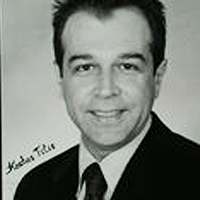Post-stroke dizziness of visual-vestibular cortices origin
Published on: 27th November, 2020
OCLC Number/Unique Identifier: 8799408842
Many patients with chronic cerebrovascular diseases complain “dizziness”, which is a distortion of static gravitational orientation, or an erroneous perception of motion of the sufferer or of the environment. In the vestibular cortical system, the parieto-insular vestibular cortex (PIVC) serves as the core region having the strong interconnections with other vestibular cortical areas and the vestibular brainstem nuclei. By forming the reciprocal inhibitory interactions with the visual cortex (VISC), it also plays a pivotal role in a multisensory mechanism for self-motion perception. In a line of our studies on post-stroke patients, we found that there was a significant decrease in the cerebral blood flow in both the VISC and PIVC in the patients who suffered from dizziness. In this article, we provide a new concept that due to dysfunction of the visual-vestibular interaction loop, low cerebral blood perfusion in the PIVC and VISC might elicit post-stroke dizziness.
Cortical spreading depolarizations in the context of subarachnoid hemorrhage and the role of ketamine
Published on: 23rd March, 2021
OCLC Number/Unique Identifier: 9026724760
Delayed cerebral ischemia (DCI) is one of the main complications of spontaneous subarachnoid haemorrhage and one of its causes is the cortical spreading depolarizations (CSDs). Cortical spreading depolarizations are waves of neuronal and glial depolarizations in which there is loss of neuronal ionic homeostasis with potassium efflux and sodium and calcium influx. In damaged brain areas and brain areas at risk, such as those adjacent to subarachnoid haemorrhage (SAH), CSDs induce microvascular vasoconstriction and, therefore, hypoperfusion and spread of ischemia. Several studies have been devoted to minimize secondary injuries that occur hours to days after an acute insult. Ketamine, a drug until recently contraindicated in the neurosurgical population for potentially causing intracranial hypertension, has re-emerged as a potential neuroprotective agent due to its pharmacodynamic effects at the cellular level. These effects include anti-inflammatory mechanisms, and those of microthrombosis and cell apoptosis controls, and of modulation of brain excitotoxicity and CSDs. A literature review was performed at PubMed covering the period from 2002 to 2019. Retrospective studies confirmed the effects of ketamine on the control of CSDs and, consequently, of DCI in patients with SAH, but did not show improvement in clinical outcome. The influence of ketamine on the occurrence/development of DCI needs to be further confirmed in prospective randomized studies
IC87201, a PSD-95/nNOS Inhibitor, Ameliorates Heart Rate Variability in the Rat Model of Middle Cerebral Artery Occlusion
Published on: 11th July, 2023
Objective: Assessment of heart rate variability (HRV) is a non-invasive and reliable method to evaluate autonomic disorders after cerebral ischemia. The present study was conducted to investigate the therapeutic potential of IC87201 in reducing post-stroke cardiac dysfunction. Materials and methods: Cerebral ischemia was induced by the middle cerebral artery occlusion (MCAO) method in 15 anesthetized adult male rats in three MCAO, MCAO+ DXM, and MCAO+ IC87201 groups, for one hour. Electrocardiogram was recorded before, and 48 hours after ischemia and drug administration, and HRV parameters were calculated from R-R intervals. In the treatment groups, IC87201 and Dextromethorphan hydrobromide monohydrate (DXM) were injected after an ischemic period. Results: After brain ischemia, the R-R interval decreased and consequently heart rate increased. The R-R intervals were used to extract the HRV frequency and time domains, including normalized low frequency (LF), high frequency (HF), LF/HF ratio, and standard deviation of R-R interval (SDRR). Normalized LF and LF/HF ratio enhanced 48 hours after ischemia, while normalized HF and SDRR significantly reduced compared to the pre-ischemic state. All HRV parameters had returned to their pre-ischemic level 48 hours after IC87201 and DXM administration, except SDRR, which recovered only in the IC87201 administered group. Conclusion: Based on our findings, it can be concluded that cerebral ischemia significantly worsens HRV parameters as a result of sympathetic overactivity. These changes were reversed by administering DXM and IC87201, but IC87201 has generally been more effective in lowering lesions. As a result, IC87201 can be introduced as an effective substance for the treatment of post-ischemic cardiac side effects.
















